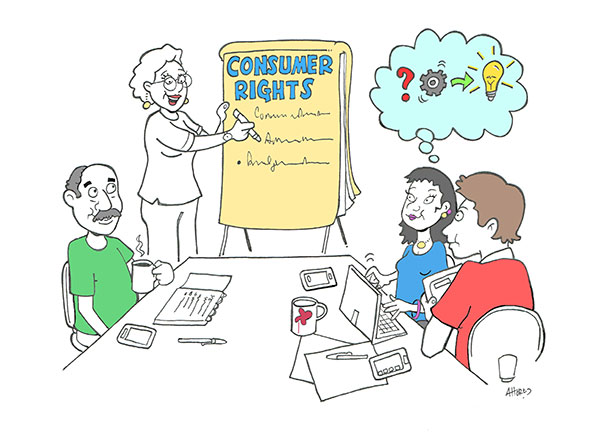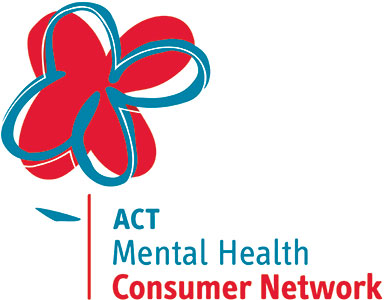Community Education
Community Education focuses on supporting consumers to build the professional skills they need to become actively involved with the work of the Network, beyond simply membership.
Following completion of our courses, consumers can become:
- a Consumer Representative;
- a Mentor for new Consumer Representatives; and
- a Co-Facilitator of our training programs.
The Network is proud to facilitate free training programs for consumers.

Self-Advocacy and Consumer Representation Training
Self-Advocacy and Consumer Representation Training is about the individual exercising their personal skills so that the consumer voice is heard, listened to, and acted upon. This course supports you, the consumer, to identify how effective you can be as a self-advocate and be a voice for other consumers.
Presented in two parts, this training has been designed with consumers, for consumers. The first part of the course is Self-Advocacy training and the second is Consumer Representation.
Our Self-Advocacy and Consumer Representation Training gives participants the opportunity to discover, reflect upon and respond to issues of stigma and consumer participation in the ACT.
Advocacy begins with the individual, and through skills-based training consumers are prepared with the tools to communicate effectively in a range of situations.
Informed individuals then have the capacity to represent the consumer voice to the wider community where systemic change can happen.
The ACT Mental Health Consumer Network, through their educational programs, have given me the courage and skills to advocate in the mental health system. Several years ago, I began my journey in mental health systemic advocacy by attending the self-advocacy course, after completing that I did the consumer representation training, and recently ‘My Rights My Decision’, understanding NDIS and mentoring courses. These courses are empowering for consumers and help us understanding our health and wellbeing and voice systemic issues in committees within the mental health system.
Mental health workers are encouraged to attend.
Co-Facilitation Training
At the Network we believe that the lived experience of our members can make a valuable contribution to our workshops. The purpose of this training is to provide eligible members the skills and opportunity to use their expertise of lived experience as Co-facilitators in the Network’s training programs.
The workshop consists of four training modules, as well as the opportunity for the workshop participants to put into practice the skills learned during the training by having a go in facilitating a range of activities.
Module 1 – Why Peer Work?
What is the benefit of drawing on lived experience? What types of roles are there in Peer Work? What can we do to work effectively as peers?
Module 2 – Group Facilitation Skills 1 (How We Learn and Introduction to Facilitation)
What are some principles for group training? How can we facilitate in an interactive and inclusive way?
Module 3 – Group Facilitation Skills 2 (Facilitation and Co-facilitation Skills)
How can we use different tools and methods when facilitating? How can we effectively share the facilitation of group training with another facilitator?
Module 4 – Self Care
How can we look after our own wellbeing as Peer Facilitators?
Education Reference Group (ERG)
The role of the ERG is to provide lived experience expertise and advice to the Network’s consumer driven Community Education Program (CEP), including its peer education arm.
The ERG’s functions include:
- Guiding the design, development and review of existing and new workshops and training.
- Monitoring, supporting and reviewing education projects.
- Making recommendations in relation to education projects where required.
- Identifying and discussing potential new education projects and opportunities.
The ERG meets periodically depending on if any projects are in development or as required. Meetings are held both virtually and in-person and run for approximately 2 hours.
All ERG members receive a non-reportable reimbursement to cover the potential costs of their participation in meetings.
When positions for the ERG become available, we advertise this through our website and email communications.
Sign up to be a member and be sure to indicate your interest in any of our training workshops or to be notified of any volunteering opportunities, so you know when we a recruiting for new ERG members.
